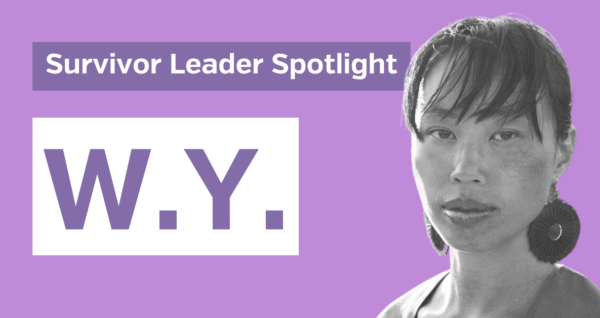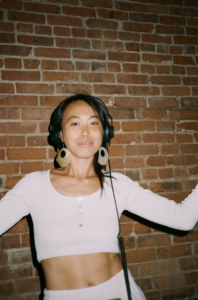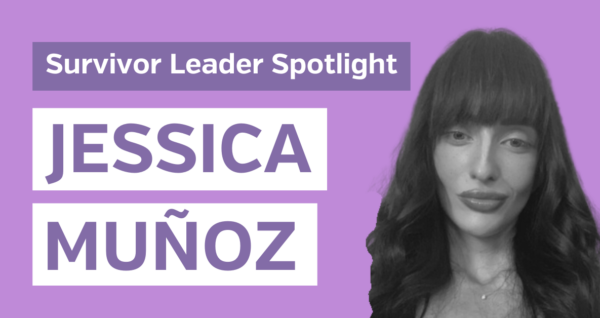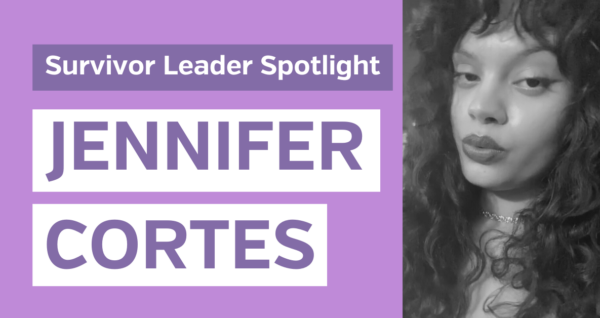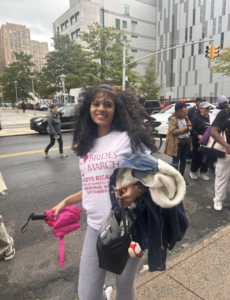In a unique collaboration, a London-based team of Latham & Watkins attorneys joined forces with Sanctuary to represent a domestic violence survivor in her asylum application.
Sanctuary for Families’ Pro Bono Project has the honor of working with hundreds of extremely dedicated and expert pro bono attorneys annually. As part of our Pro Bono Spotlight, we highlight some of the great work done by Sanctuary pro bono attorneys!
*Please note that this blog contains descriptions of stalking and physical and sexual abuse that could be triggering*
Latham & Watkins Advocates Secure Asylum Victory for Domestic Violence Survivor
Sanctuary for Families is thrilled to highlight the outstanding work of a London-based team of attorneys from Latham & Watkins comprised of partner Shawn Anderson and associates Oscar Lopez, Laurie Tomassian, Laura Harper, Heri Ali Mwapachu, and Gabriela Barriuso Clark. In a unique collaboration, this team joined forces with Sanctuary to represent a domestic violence survivor in her asylum application. By working closely with the client and witnesses via Zoom, the Latham team effectively built a strong client relationship and drafted highly compelling affidavits and supporting declarations, while the Sanctuary team contributed to other supporting documents and to trial appearances. This creative approach ensured full representation and, ultimately, an asylum grant to a survivor who had been living in danger for years.
Sanctuary first connected with “Michelle,” a survivor of severe domestic violence from Ecuador, in January 2023 through a partnership with a community-based organization. Michelle was in her thirties at the time and had survived emotional, verbal, and physical abuse from childhood at the hands of multiple family members and intimate partners before the abuse culminated in her relationship with “Franco.” The abuse she suffered from Franco put Michelle at a significantly high risk of femicide at the hands of her abuser. Under Dr. Jacquelyn Campbell’s widely used Danger Assessment, an escalation of violence, threats of murder, possession of weapons, sexual assault, violent jealousy, and control are all indicators of an increased risk of lethality. All of those factors were present here. Despite Michelle’s multiple relocations to escape him, Franco terrorized Michelle for five years by doggedly stalking, kidnapping, and assaulting her, holding Michelle hostage for periods ranging from days to up to a month. This terrible abuse culminated when Franco stabbed Michelle and assaulted her in front of their young daughter. The incident made it clear to Michelle that she and her daughter had to flee her home country to save her life.
Upon her arrival in the United States, Michelle was immediately placed in removal proceedings in Immigration Court in New York. Her proceedings moved relatively quickly: the Immigration Judge told her to file her Form I-589 Application for Asylum in short order and then gave her a fast-approaching date for her Merits Hearing. Sanctuary helped Michelle file her Form I-589 pro se. However, given the high caseload of immigration clients that the team was already serving, as well as the tight turnaround, they did not have the capacity to fully represent Michelle and prepare all her asylum-supporting evidence before the Merits Hearing. Thankfully, Latham volunteered to support Sanctuary and Michelle and help prepare her for the Hearing.
With Latham’s significant support, Sanctuary’s Immigration Intervention Project (IIP) could commit to representing Michelle in Immigration Court. The London-based team of associates Oscar Lopez, Laurie Tomassian, Laura Harper, Heri Ali Mwapachu, and Gabriela Barriuso Clark, under the supervision of partner Shawn Anderson, worked closely with Michelle to complete a comprehensive client affidavit in support of her asylum application, as well as to prepare other supporting evidence. Critically, the team also met with three fact witnesses, including Michelle’s psychologist from the DV shelter and her attorney in Ecuador, to obtain supporting declarations. IIP Senior Staff Attorney Daria Campion, one of the case supervisors, notes, “I didn’t even realize this until much later, but due to the time difference between London and Ecuador, the calls were conducted by the team at 11 PM their time!” Nevertheless, the trauma-informed team was able to form a strong bond with the client due to the sensitivity with which they approached their interviews. IIP Co-Deputy Director Deirdre Stradone adds of the successful partnership, “Given the tight turnaround, we wouldn’t have been able to compile this packet ourselves in time. Dividing tasks between ourselves and the Latham team was critical.”
The declarations drafted by the Latham team not only described the horrific abuse Michelle had suffered but also detailed how authorities were unable or unwilling to protect her. They pointed to the numerous incidents of reported domestic violence that preceded the final attack on Michelle. Time and time again, Michelle had been disregarded or even blamed for the pattern of abuse, while Franco had been released from jail on account of a “lack of evidence”— even on occasions in which Michelle had been hospitalized or suffered visible physical injuries.
While the Latham team diligently worked on these declarations, the Sanctuary supervisors worked on compiling the psychological evaluation, expert declaration, legal brief, and country conditions needed for the Merits Hearing. The final asylum packet was so compelling that the ICE attorney stipulated to asylum and waived its appeal, meaning that Michelle was not required to testify and re-traumatize herself in court and that the decision of the judge granting asylum was final. “We are so grateful to the Latham team, which was so trauma-informed, helpful, and flexible in its work for Michelle,” Deirdre says, pointing to the team’s constant willingness to jump on Zoom calls with the client at odd hours to locate an interpreter, and to contribute to any part of the case that needed attention.
Deirdre added that members of the U.S. Capital Markets team in Latham’s London office, including some of the same attorneys highlighted here, have continued their work with Sanctuary and are building asylum expertise through collaborative representation of at least five more applicants and several pro se clients.
This case had an incredible outcome for a client who has been living in a state of constant danger and fear for so long: Michelle can now finally begin to plant roots and recover from the years of trauma she endured. Sanctuary is so grateful to Oscar, Laurie, Laura, Heri, Gaby, and Shawn for their dedicated and life-changing advocacy for Michelle.
The Latham team is equally grateful for the opportunity to work on this case alongside Sanctuary:
“It was an honor and privilege to work on this matter with Sanctuary for Families. While it was a difficult case due to the nature of the sensitive and emotional information Michelle shared, her compelling story motivated us to complete the filing as comprehensively as possible to ensure she and her daughter were granted asylum. We are thrilled at the outcome for Michelle and her daughter.” – Latham & Watkins Team
Sanctuary would be delighted to explore this type of collaboration with other firms. Anyone interested in partnering with Sanctuary for Families to help support one of our asylum cases is welcome to reach out to our Pro Bono Project to discuss opportunities, which include full or partial representation of affirmative and defensive clients, discrete drafting assistance, or hosting an Asylum Pro Se or Pro Se PLUS Clinics. International teams are welcome to volunteer on asylum cases by drafting supplementary materials and interviewing clients and witnesses without attending in-person court appearances.

